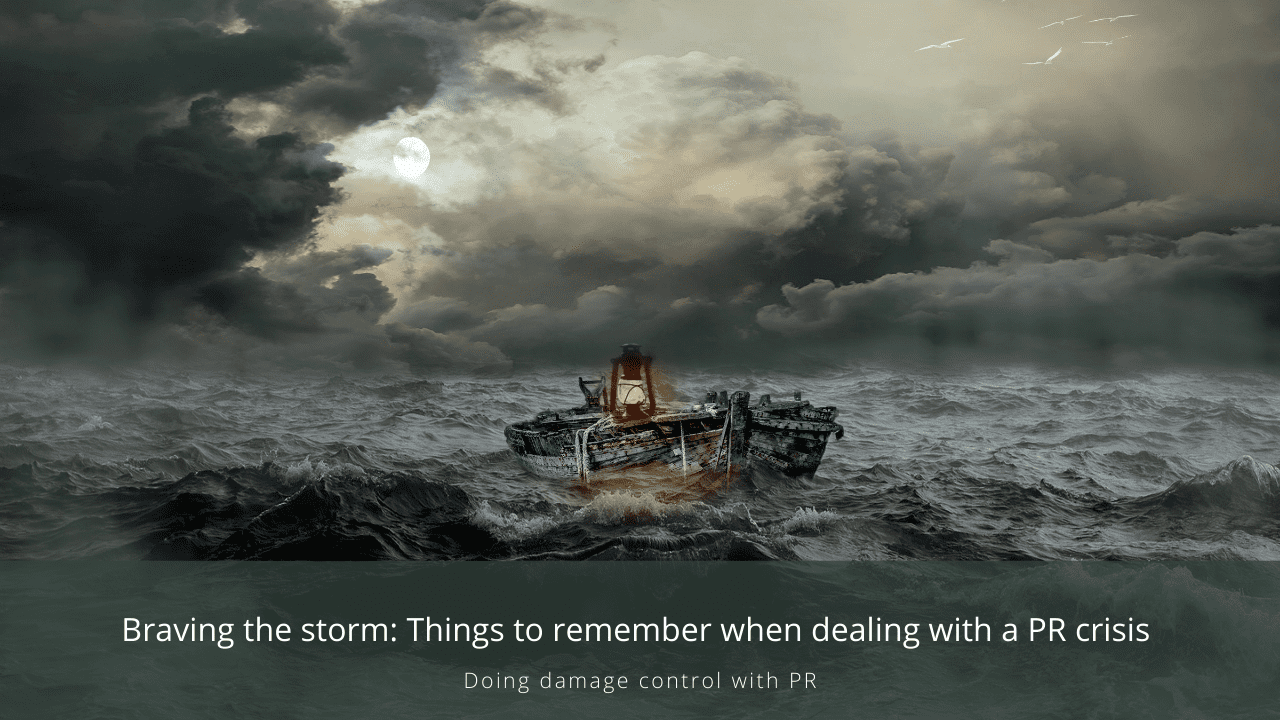Nobody wakes up and decides to mess up but it happens.
Good crisis management is about handling your blunder the right way once the damage is done. Every day, businesses pummel in value over the way they manage crises or the lack of it. Especially in times of pandemic and political tension, brands run the risk of ending up on the wrong end of watchdog journalist pages.
1,430 out of 2,084 senior executives have claimed to experience at least one crisis in the past 5 years with a total of over 4,000 crises reported overall. The same study found 42% of companies see positive results post-crisis and 19% who are in a worse place.
The key to good crisis management isn’t to avoid having one altogether, but to manage it effectively to turn the situation around. Here are some things to remember when planning your crisis management strategy.
Listen to conversations
Social listening can be a useful tool in determining your vulnerability and assess your risk of crisis. It’s important to pay attention to what people are saying to highlight public sentiment or concerns.
Consistently listening to what others have to say can help you get ahead of possible PR blunders that you might make. This could come in the form of racy tweets, unlikeable influencer marketing or tasteless packaging or product.
Just last month, Singapore Airlines found themselves on the bad side of environmental vigilance after launching their newest product: Flights to Nowhere. The initial idea was nerfed after wide criticism for its environmental impact and financial viability. Singaporeans flooded to join petitions and tweetstorms to save the “silver lining in a time of a pandemic” – nature healing itself.
The airline responded swiftly with a new plan for a plane restaurant, home-delivered premium meals and tours. In a public statement, SIA chief executive also thanked the public for their suggestions, in a move expected from one of the nation’s branding geniuses.
Listen intently to your audience to determine potential misconduct within your organization and your next course of action to address any crisis.
We explore how influencer-generated content proves to be an essential marketing strategy.
Take responsibility
Since damage is done, you have to take accountability for it instead of trying to divert attention or find excuses. Most of the time when people have formed an opinion on a situation, it is hard to change their minds. Be candid, honest and transparent in your apology and tell the public your next steps to take.
That being said, the obligation that organisations have to ethical practices is an ongoing process that some brands fail to realize. Take a look at Reformation’s downfall where the CEO of a popular fashion brand known for sustainability based in Los Angeles had to step down after a weekend of apologizing for racist accusations made by a former employee. In an Instagram post titled “I’ve failed”, she apologised for her poor leadership and overlooking the struggles of the minority races and their cause. Yael Alfalo’s notable reckoning came as a result of vigorous social movements in America that have extended onto social media.
However, most people were hesitant to accept the apology as they felt the remorse came a little too late and Alfalo only resigned because she was called out.
On the other hand, Dove made an exemplary case for recovering from a PR crisis in 2017 when a racially insensitive clip offended viewers. Immediately, the brand came out with a statement, formally apologising for their tactlessness.
The primary difference between the two is that one had a long-standing history of promoting inclusivity, while the former’s apology invited a domino of accusations that Alfalo was not held accountable for in the past.
We discuss how to craft an excellent PR pitch.
Timing is crucial
When it comes to press coverage for a PR crisis, timing is everything. Missing the window for releasing a statement could give way to more gossip and speculations which is harmful to your brand.
This does not mean that you rush to come up with something sloppy. Find the balance.
Knowing when to step in with short-term PR crises can save your long-term brand reputation. The saying that “bad publicity is still publicity” might not ring true now with shorter attention spans and round-the-clock news coverage.
In fact, when United Airlines waited a few weeks to respond to a viral clip of a man being violently removed from one of their flights, there was an immediate 26% drop in willingness to purchase from them. More than half a year later, United Airlines had not fully recovered from the impact of its bad publicity.
PR crises are unavoidable for any company – no matter how committed you are to ethical behaviour. When you’re facing the nightmare of damage control, be sure to cover all ground to ensure a smooth plan.
Want to learn more about how social media can benefit your PR strategies? We have curated an exclusive and FREE eBook that encapsulates the heart of PR and the crux of what it means to dive head-first in this industry. Download the eBook here.


